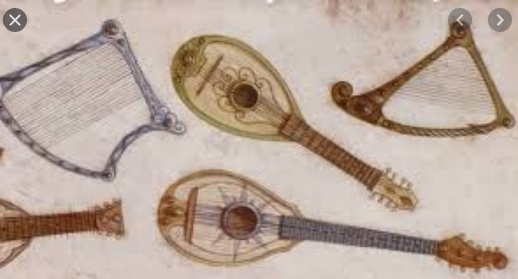If you’ve got proficiency with a given instrument, you’ll add your proficiency bonus to any ability checks you create to play music with the instrument. A bard can use an instrument as a spellcasting focus, substituting it for any material component that doesn’t list a price. Each sort of instrument requires a separate proficiency. Proficiency with an instrument indicates you’re conversant in the techniques want to play it. you furthermore may have knowledge of some songs commonly performed thereupon instrument.
Check also: D&D 5e Backgrounds (5th Edition)
- Your expertise aids you in recalling lore associated with your instrument.
- Your ability to place an honest show is improved once you incorporate an instrument into your act.
- Compose a Tune. As a part of an extended rest, you’ll compose a replacement tune and lyrics for your instrument. you would possibly use this ability to impress a noble or spread scandalous rumors with a catchy tune.

5e Instruments
| Birdpipes | Pan pipes or satyr pipes, also known as the shalm, these are sacred to Lliira and popular with wood elf and wild elf bards. |
|---|---|
| Glaur | Short, curved horns like a cornucopia. Played with valves, glaur sound like trumpets, while those without valves, known as gloon, have a more mournful sound. |
| Hand Drum | A double-headed skin drum fitted with handles along its side. |
| Longhorn | A Faerilnian flute of sophisticated make, found only in areas with skilled artisans, as in great cities or elven enclaves. |
| Shawm | A double-reed instrument similar to an oboe or a bassoon, popular with gnomes, who have developed some bellows-powered versions. |
| Songhorn | A recorder, a simple type of flute, usually carved from wood. |
| Tantan | A tambourine, a popular instrument with halflings and humans south of the Dalelands. |
| Thelarr | Also known as a whistlecane, a simple and easy-to-make wind instrument cut from a reed. They are so simple, in fact, that skilled bards frequently make and give them away to children-to the parents' delight or regret. |
| Tocken | A hanging set of carved oval bells, usually played with a pair of light wooden hammers (or open handed). They are most common in underground cultures, where the resonant tones can carry. |
| Wargong | A metal gong, traditionally made from a shield, particularly the s hield of an enemy. Both goblins and dwarves make and play wargongs, their sound echoing through tunnels in the Underdark. |
| Yarting | A southern instrument from Arnn and Calimshan that is a Faerilnian analog to the guitar Numerous variations have spread across the continent. |
| Zulkoon | A complex pump organ that originated with the zulkirs of Thay, who use it in the casting of their spells. It is considered to have a dramatic, but sinister, sound. |
The Player Manual mentioned the D&D 5e musical instruments. These dnd musical instruments also are collected below, which are the hottest within the d&d 5e player’s handbook.
The most popular D&D 5e musical instruments list include:
- Birdpipes
- Longhorn
- Shawm
- Glaur
- Hand Drum
- Wargong
- Yarting
- Zulkoon
- Songhorn
- Tantan
- Thelarr
- Tocken
A double reed is analogous to an oboe or a bassoon, fashionable gnomes, who have developed some bellows-powered versions.
Also referred to as a whistle came, an easy and easy-to-make wind cut from a reed. they’re so simple, in fact, that skilled bards frequently make and provides them a way to children-to the parents’ delight or regret.
A hanging set of carved oval bells usually played with a pair of sunshine wooden hammers (or open-handed). They’re commonest in underground cultures, where the resonant tones can carry.
A metal gong is traditionally made up of a shield, particularly the shield of an enemy. Both goblins and dwarves make and play warnings, their sound echoing through tunnels within the Underdark. A southern instrument from Arnn and Calimshan that’s a Faerilnian analog to the guitar Numerous variations have spread across the continent. A complex pump organ that originated with the zulkirs of Thay, who use it within the casting of their spells. it’s considered to possess a dramatic, but sinister, sound.
If you’ve got performance but not proficiency, you are not particularly good at playing but your choice of songs, your stage-patter, and your general charisma carries the day – you entertain the gang, albeit you are not the simplest guitarist ever (perhaps the entertainment partially derives from your lack of skill, even) – otherwise, you fail and your lack of technical skills show and disappoint.
If you’ve got proficiency but not performance, you are a good technical musician but your stage presence is unpolished. If you succeed, you’re carried on the strength of your technical skill otherwise you make a real reference to the crowd; if you fail, you’re spending all of your time concentrating on your technical performance and fail to attach with the audience in the least.
Related posts:

Virat Rana is a Blogger from the city of Joy, Kolkata. He is the founder of this blog and covers a wide range of topics from Gadgets to Software to the Latest Offers. You can get in touch with him via [email protected]